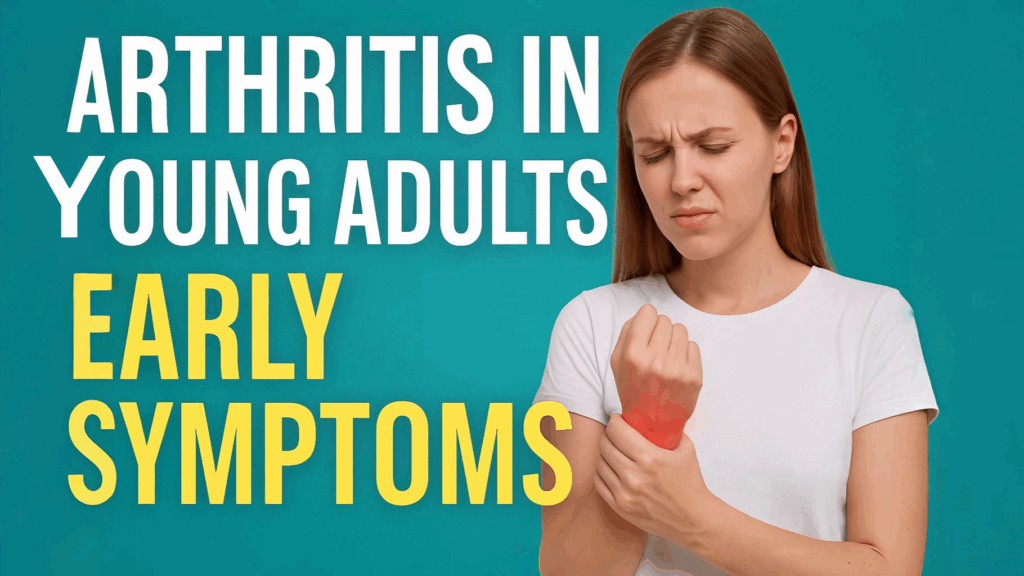Published by OM Kilkari Hospital | Your Trusted Partner in Health

When we think of arthritis, we often imagine older adults struggling with joint pain and stiffness. However, arthritis is not limited by age. A growing number of young adults in their 20s and 30s are now being diagnosed with various forms of arthritis, and early detection is the key to managing symptoms and preventing long-term damage.
At OM Kilkari Hospital, we believe in empowering young individuals with knowledge that helps them take control of their health. This article sheds light on the early symptoms of arthritis in young adults and why timely medical attention is crucial.
What is Arthritis?
Arthritis refers to inflammation of one or more joints, leading to pain, swelling, and limited movement. There are more than 100 types of arthritis, but the most common ones affecting young adults include:
- Rheumatoid Arthritis (RA) – an autoimmune condition
- Juvenile Idiopathic Arthritis (JIA) – affects children and teens, often continuing into adulthood
- Psoriatic Arthritis – linked with psoriasis, a skin condition
- Reactive Arthritis – triggered by an infection
- Osteoarthritis (early-onset) – usually due to injury or repetitive joint stress
Why Arthritis Affects Young Adults
Several factors can contribute to early-onset arthritis:
- Genetics – A family history of autoimmune diseases
- Injuries – Repeated joint injuries from sports or accidents
- Obesity – Extra weight puts more pressure on joints
- Lifestyle – Poor posture, lack of physical activity, or excessive strain
Early Symptoms of Arthritis in Young Adults
Recognizing the early signs of arthritis is crucial for early diagnosis and management. Here are the most common symptoms to watch out for:
1. Persistent Joint Pain
If you experience consistent pain in joints such as knees, wrists, fingers, or ankles that doesn’t go away with rest or over-the-counter painkillers, it could be an early sign.
2. Morning Stiffness
A classic symptom of inflammatory arthritis. If your joints feel stiff and immobile when you wake up, and the stiffness lasts more than 30 minutes, it’s a red flag.
3. Swelling in Joints
Unexplained swelling in one or more joints — particularly if it’s warm to the touch — should never be ignored.
4. Fatigue and Weakness
Feeling tired or weak, even with enough rest, may indicate systemic inflammation affecting your body.
5. Reduced Range of Motion
If you find it harder to bend, twist, or fully move your joints, it could be a sign of joint damage or inflammation.
6. Numbness or Tingling
Tingling sensations, especially in the hands and fingers, may point toward nerve compression or inflammation around the joints.
7. Low-Grade Fever
Intermittent fever without any clear infection can be associated with autoimmune arthritis types like RA.
When to See a Doctor
If you notice any of these symptoms for more than two weeks, it’s time to consult a rheumatologist. Early diagnosis can help:
- Prevent joint damage
- Maintain mobility
- Improve quality of life
- Reduce the need for surgical intervention later
Diagnosis and Treatment at OM Kilkari Hospital
At OM Kilkari Hospital, we offer comprehensive arthritis care, including:
- Detailed clinical evaluation by specialist rheumatologists
- Advanced diagnostic imaging (X-ray, MRI, Ultrasound)
- Blood tests to identify autoimmune markers
- Customized treatment plans including medications, physical therapy, and lifestyle advice
For complex cases, our multidisciplinary team — including physiotherapists, orthopedists, and dietitians — ensures holistic care.
Living with Arthritis: Lifestyle Tips for Young Adults
Managing arthritis goes beyond medications. Here’s how young adults can maintain joint health:
- Stay Active: Regular low-impact exercises like swimming, cycling, or yoga
- Eat Anti-inflammatory Foods: Leafy greens, nuts, fish, and berries
- Maintain Healthy Weight
- Avoid Smoking and Excess Alcohol
- Manage Stress: Mindfulness, meditation, or therapy
Final Thoughts
Arthritis is not just a disease of the elderly. It can affect vibrant, active young adults — often silently at first. If you’re experiencing joint pain, fatigue, or stiffness, don’t dismiss it as “just stress” or overuse. The earlier it’s detected, the better your chances of maintaining a full, active life.
Book your consultation with OM Kilkari Hospital today and take the first step toward healthy, pain-free joints.

